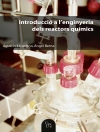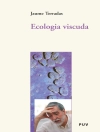This book argues that science and the arts are not two different cultures, but rather different manifestations of the same culture. Divided into seven parts, it presents a collection of translated and revised essays, mostly at the intersection between realia and humaniora. In the first two parts, the author discusses how some myths, both ancient and modern, have become intertwined with scientific ideas. The chapters in the following four parts address poems, novels, plays, and pieces of fine art that have some scientific content, as well as scientific findings which seem to have also been discovered in art. The chapters in the final part examine a number of inspiring doubts and necessary errors in the history of science. This collection of essays, most of which were originally published in Hungarian, is intended for the general public and as such includes no mathematical, physical or chemical formulae. It offers a unique resource for all those curious about the interconnections between science, art and literature.
Daftar Isi
Mithodology.- Alchemy.- Poems and Science.- Novels.- Thermodynamics.- Fine Arts.- The Pleasure of Doubt.- A private letter about this book.
Tentang Penulis
Róbert Schiller (1935), born in Budapest, Hungary, graduated from R. Eötvös University, Budapest in 1958, and completed his Ph D in 1966 and DSc in 1974. He is a titular professor at R. Eötvös University and Dr. habil Privatdozent at Budapest Technical University. After completing his studies, Professor Schiller joined the Chemistry Department of the Central Research Institute for Physics, Hungarian Academy of Sciences, where he is now a Research Professor Emeritus. Having worked at several laboratories abroad, he e.g. spent a full year at the Paterson Laboratories, Manchester, UK. His main research interests are in radiation chemistry, electrochemistry, and the theory of transport processes. Currently, he is investigating the effects of fast ions on metals. He has taught courses on radiation chemistry and statistical mechanics at R. Eötvös University, and has published several textbooks in these areas. Apart from his research papers, Professor Schiller has also written booksand a number of essays popularizing science. He was awarded the Wigner Prize by the Hungarian Academy of Sciences in 2001, was voted the popular science author for the year 2012, and asteroid no.196005 was named Robertschiller in his honour.












